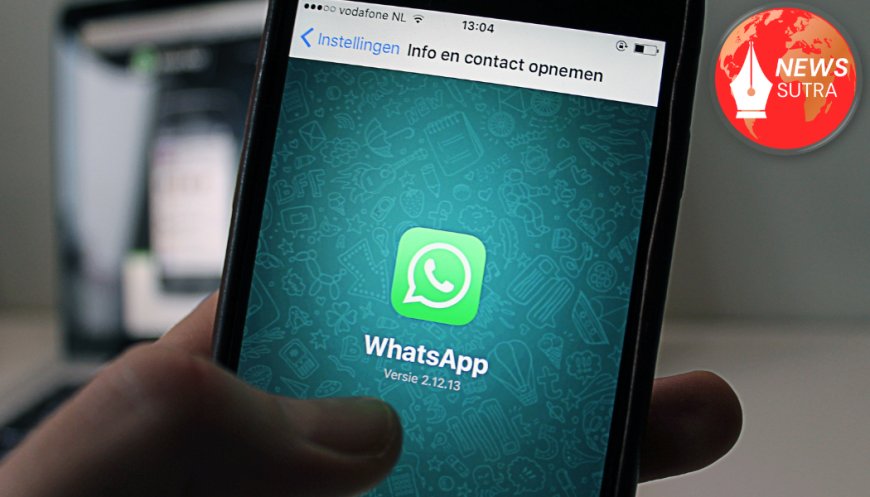Meta's Big Shift: WhatsApp to Start Showing Ads in Updates Tab
WhatsApp will begin displaying ads in its Updates tab, signaling a major monetization shift. Here’s what users, businesses, and privacy advocates need to know.

A Silent Revolution: WhatsApp Embraces Advertising
WhatsApp, the world’s most-used messaging platform with over 2.7 billion active users, is finally introducing advertisements. Starting this quarter, ads will appear in the Updates tab, a section typically used for viewing Status updates and following Channels.
This marks a historic departure from WhatsApp’s original ethos of “no ads, no games, no gimmicks,” which the app’s founders strictly adhered to before Facebook (now Meta) acquired it in 2014.
Where and How Will Ads Appear?
The ads will not interfere with private conversations, groups, or calls. Instead, only the Updates tab will host advertisements—specifically between user-generated Status updates and promoted Channel suggestions.
From a visual standpoint, these ads will resemble Instagram’s Stories format, enabling vertical viewing, swiping, and call-to-action buttons like “Learn More” or “Shop Now.” They will be static image or short video-based, and businesses will be able to link them to their WhatsApp Business accounts or websites.
A Controlled Rollout
Meta has clarified that:
-
Ads will not launch globally at once, but instead through a phased rollout across key regions, beginning with Brazil, India, and parts of Europe.
-
The advertising inventory will primarily include verified brands and partners, particularly those already using Meta’s Business Suite tools and WhatsApp APIs.
Initial testing suggests that users who follow multiple Channels or view Status updates regularly are more likely to see ads. WhatsApp engineers also say they are experimenting with “frequency caps” to prevent oversaturation.
User Privacy: What’s at Stake?
One of the most pressing concerns is data privacy. According to Meta, the following principles guide the implementation:
-
End-to-end encryption remains untouched. Chats, calls, media, and location sharing are not used for ad targeting.
-
Ads will use non-sensitive metadata like device language, country code, mobile carrier, and the Channels a user follows or interacts with.
-
Users can opt out of personalized ads if they choose not to link WhatsApp with the broader Meta ecosystem (i.e., Facebook and Instagram accounts).
However, privacy watchdogs in the EU have warned that such changes, even when appearing minimal, could lay the foundation for deeper behavioral profiling later—especially if the “Updates” tab evolves to become more content-rich and algorithm-driven.
Why Is Meta Doing This Now?
For years, Meta struggled to monetize WhatsApp effectively. Unlike Facebook and Instagram, which generate billions via ad placements, WhatsApp remained largely reliant on:
-
WhatsApp Business APIs (used by companies like Uber, JioMart, and MakeMyTrip),
-
and limited click-to-chat ads placed on Facebook/Instagram that redirect users to WhatsApp.
According to internal financial disclosures, WhatsApp currently generates under 4% of Meta’s total ad revenue, despite housing one of the most engaged user bases in the world. By introducing ads natively, Meta hopes to:
-
Increase revenue per user (RPU) in emerging markets,
-
Compete directly with WeChat’s monetization model, and
-
Offset stagnation in Facebook's and Instagram’s ad growth.
Opportunities for Businesses
The change presents several advantages for businesses:
-
New Ad Real Estate: With visibility in the Updates tab, businesses gain exposure to users scrolling through statuses or discovering Channels.
-
Integrated Commerce: WhatsApp ads can link directly to in-app catalogs, allowing purchases without switching apps.
-
Audience Retargeting: Brands already leveraging Meta’s Business Suite can retarget users based on interactions across Facebook, Instagram, and WhatsApp.
In fact, several e-commerce giants and fintech firms are already experimenting with early access campaigns using this format, finding higher click-through rates due to WhatsApp's low-noise environment.
Early Reactions: Mixed Sentiments
While Meta insists that ads will be “non-invasive,” public sentiment varies. On Reddit and X (formerly Twitter), long-time users express concern over WhatsApp “becoming just another Facebook,” with many threatening to migrate to Signal, Telegram, or Threema.
Others, particularly small business owners, welcome the move. “If I can reach a customer right where they communicate daily, that’s powerful,” says Rakesh Mehta, a boutique owner from Pune who sells handcrafted jewelry via WhatsApp.
Looking Ahead: A Platform in Transition
WhatsApp is evolving. From a private messaging app to a platform that hosts:
-
Commercial transactions,
-
Creator content (via Channels),
-
Customer service,
-
And now, targeted advertising.
This move doesn’t just change WhatsApp—it redefines expectations for what messaging apps can be.
As users, the trade-off between free access and privacy becomes more pronounced. And as advertisers, a new frontier of customer engagement is just beginning.














